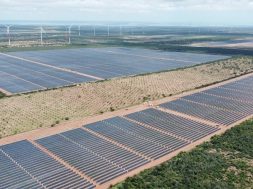
BENGALURU: With solar energy prices progressively falling, Karnataka’s power regulator has directed the state’s renewable energy development agency to substantially lower the benchmark tariff for its forthcoming solar auction from what it had earlier agreed to.
The Karnataka Electricity Regulatory Commission (KERC) had earlier accepted a base price of Rs 4.36 per unit for an 860 MW solar auction the KarnatakaRenewable Energy Development Ltd (KREDL) wants to hold shortly. But when KREDL approached it to extend the time permitted to winning developers to complete their projects from 12 months to 18, it used the opportunity to reset the base tariff as well. It agreed to the extension, provided the lowest permissible bid was set at Rs 3.57 per unit.
KREDL had sought the time extension following developers’ complaints that they were facing difficulties in acquiring and transferring the land they needed for their projects. Setting up each megawatt of solar capacity requires around six acres.
“I am directed to communicate approval of the Commission to allow 18 months for achieving COD (commercial operation date)… subject to a benchmark tariff of Rs3.57 per unit instead of Rs 4.36 per unit,” said the January 11letter from the KERC secretary to the additional chief secretary in Karnataka’s energy department. It further added that if the project is delayed, the tariff will be lowered further to 80% of the winning bid and that a delay beyond three months will not be allowed.
The benchmark tariff is almost half of that set in the previous solar auction of 1200 MW Karnataka held in March 2016, which was Rs 6.51 per unit. The winning bids at the time varied between Rs 4.69 and Rs5.81 per MW, depending on the location of the project. Karnataka had distributed the locations for the projects across 60 of its 177 talukas. This time as well the 860 MW have been distributed across 43 talukas.
Solar tariffs have dropped steeply in the 22 months since Karnataka held its last solar auction, the lowest tariff reached being Rs2.44 per unit at an auction conducted by the Solar Corporation of India (SECI) at theBhadla Solar Park in Rajasthan in May last year. However, since the solar radiation Karnataka receives is much weaker than that of Rajasthan (the highest in the country), its solar tariffs are expected to be sizeably higher.














